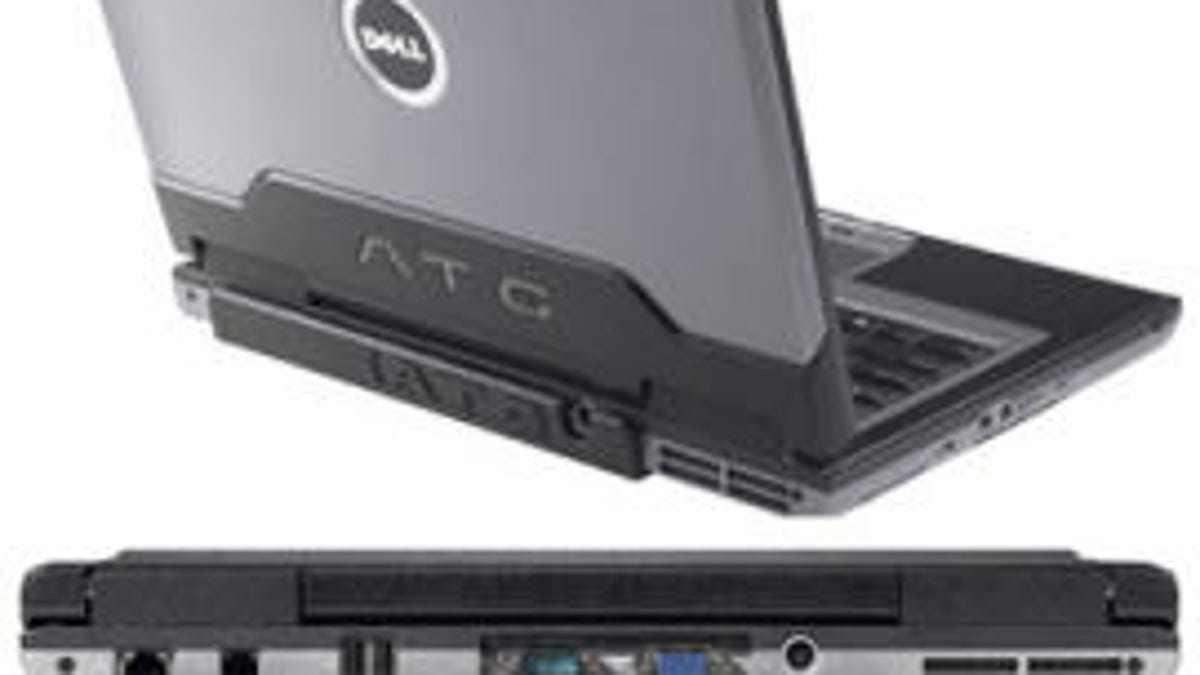Is there any way to fix Dell's woes?
Dell has lost the second place spot in the notebook market and according to Don Reisinger, it may get worse for the company.

A new study out from DisplaySearch detailing how well (or poorly) notebook manufacturers performed over the past quarter has hit the Net and the results don't look too promising for Dell.
According to the study, the global notebook market grew by about 24 percent quarter over quarter and a whopping 42 percent year over year. Amazingly, 29 million notebook units were sold in the last quarter alone and HP--the de facto leader in computing right now--commands 21.4 percent of that total, representing 72 percent growth over the same period last year.
But perhaps most startling, Dell has not only lost ground to HP in the notebook market (its share of the market fell 0.2 percent to 13.8 percent), but Acer is hot on Dell's heels and commands 12.8 percent of the total notebook market.
It gets worse: if we were to combine the total share of all Acer properties--Acer, Packard Bell and Gateway--the company's new market share is a whopping 16.2 percent, which not only puts it into second place in the worldwide notebook market, it leaves Dell far behind the pack.
Who could have thought just a few short years ago that Dell would be in such a position? Not only is the company slipping further behind, Acer--a company that had heretofore been an also-ran--has developed into a powerhouse in this industry.
But is there anything Dell can do to turn its business around? Unfortunately, the solution may not be immediately available, and it may need to change its historically successful market strategy in order to do it. If it doesn't, look for Dell to become the industry's also-ran.
For the first time in its storied history, Dell is no longer the trendsetter in the computing business. For too long, the company believed that an online-only sales strategy would last forever, and it was slow to react when companies like HP were able to finally compete in both the business and consumer sectors on price and availability.
But what Dell failed to realize was big box stores really are a nice place to sell computers nowadays, and Hewlett-Packard was laughing all the way to the bank.
Speaking to shareholders yesterday who were concerned about the company's malfeasance and its intent to engage in a $10 billion buyback, Michael Dell explained that his company has realized that it must adapt if it wants to achieve the kind of success it's used to.
"We've entered new channels with retail partners to meet our our customers where they are," Dell said. He then vowed to be more aggressive with customers and regain some of the control over the commercial market that the company has lost.
But at this point, what else can Dell really do? The company is in a tailspin and attracting customers isn't as easy as it once was. Years ago, Dell was able to enjoy much of its success because it commanded the business market and its products were of relatively high quality at a fraction of the price of its competitors.
But in today's market where notebook computers are basically a commodity and all major companies can afford to charge the same amount, Dell's main advantage has been eliminated.
Perhaps the only short-term solution for fixing Dell's issues has nothing to do with customers and everything to do with acquisitions. After all, why shouldn't Dell try to acquire the computing business of some smaller manufacturers? It worked for Acer.
The question now is what company could Dell actually acquire? Certainly Sony and Toshiba are out and Lenovo would be a tough sell considering the current state of that company. Asus may be a good target for Dell, but would it cost too much for a company that is financial trouble already? More than likely, the answer is "yes."
For the first time, Dell is in a state of confusion and outright desperation. Who would have thought that Dell would sell its computers to Wal-Mart and other retailers? But to make matters worse, there is no easy solution in sight--HP keeps getting stronger and Acer made some intelligent moves to help catapult itself to the second-place spot. What can be said for Dell?
The future looks bleak for Dell and unless it starts an all-out blitz on big box stores and major retailers, look for the company to quietly sink into the night. Sad as it is, the future of Dell is seriously in doubt.

